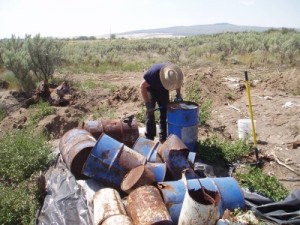Phase I, II, and III Environmental Site Assessments
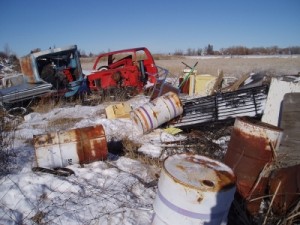 RMEA offers two critical strengths in our ability to provide the highest level of service on ESAs, as follows:
RMEA offers two critical strengths in our ability to provide the highest level of service on ESAs, as follows:
- ESAs are and have always been a core business of our company. Many of our competitors perform these projects as a sideline service, often when their core service work, such as engineering, is light.
- RMEA uses skilled and highly experienced staff. Using less experienced staff can lead to accidental omissions or errors in the report…. RMEA is able provide cost-effective yet highly experienced staff to conduct ESAs. Because RMEA uses skilled staff and the ESAs are certain to be properly conducted assuring the User a reliable report.
Rocky Mountain Environmental Associates helps with all your Phase I, II, and III Site Assessment Needs!
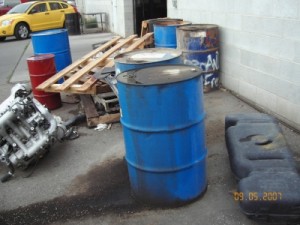 There is an abundance of written information concerning Environmental Site Assessments (ESAs), but quite simply an ESA is an investigation of real or possible environmental concerns associated with a property. The initial investigation of a property is usually referred to as a Phase I ESA, or simply a “Phase I”. The primary intent of a Phase I ESA is to provide liability protection to a prospective purchaser, lender, or other party associated with a property transaction, particularly for industrial or commercial property, but increasingly for larger farms and ranches as well. ESA procedures are detailed in various documents such as ASTM 1527-13, which is the standard procedure followed by RMEA. The work scope of a Phase I includes both a detailed on-site inspection of the property, and research of existing information and records that might reveal environmental conditions associated with a property. Liability protection can be jeopardized if the environmental firm conducting the project uses inexperienced staff who lack the proper qualifications and experience.
There is an abundance of written information concerning Environmental Site Assessments (ESAs), but quite simply an ESA is an investigation of real or possible environmental concerns associated with a property. The initial investigation of a property is usually referred to as a Phase I ESA, or simply a “Phase I”. The primary intent of a Phase I ESA is to provide liability protection to a prospective purchaser, lender, or other party associated with a property transaction, particularly for industrial or commercial property, but increasingly for larger farms and ranches as well. ESA procedures are detailed in various documents such as ASTM 1527-13, which is the standard procedure followed by RMEA. The work scope of a Phase I includes both a detailed on-site inspection of the property, and research of existing information and records that might reveal environmental conditions associated with a property. Liability protection can be jeopardized if the environmental firm conducting the project uses inexperienced staff who lack the proper qualifications and experience.
RMEA has the knowledge to efficiently and effectively deal with potential or real environmental concerns identified by the Phase I. RMEA has taken many sites from the initial identification of a recognized environmental condition, through Phase II Investigation, and eventual regulatory closure. RMEA staff have close working relationships with the regional regulatory staff, and in countless cases have used our knowledge and experience to creatively and efficiently address and reach closure of sites with environmental issues.
Surveys of Environmental Business Risks: Asbestos, Lead-based Paint, Mold
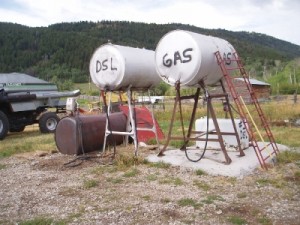 RMEA is sometimes asked to include evaluations of certain business risks as a part of some Phase I Environmental Site Assessments. These evaluations often involve asbestos, lead-paint, and/or mold surveys. RMEA typically manages these surveys on behalf of our clients, and we utilize highly experienced subcontractors who we have worked with for many years to conduct the site surveys and sampling programs. We also often act in a management and oversight capacity on abatement projects for these concerns.
RMEA is sometimes asked to include evaluations of certain business risks as a part of some Phase I Environmental Site Assessments. These evaluations often involve asbestos, lead-paint, and/or mold surveys. RMEA typically manages these surveys on behalf of our clients, and we utilize highly experienced subcontractors who we have worked with for many years to conduct the site surveys and sampling programs. We also often act in a management and oversight capacity on abatement projects for these concerns.
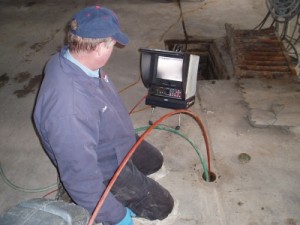 A Phase II ESA is a focused investigation of a specific recognized environmental condition(s) identified by a Phase I study. A Phase II ESA is only needed when a recognized environmental condition is identified by a Phase I study. Many sites, most actually, are free of significant environmental concerns and no additional work is required.
A Phase II ESA is a focused investigation of a specific recognized environmental condition(s) identified by a Phase I study. A Phase II ESA is only needed when a recognized environmental condition is identified by a Phase I study. Many sites, most actually, are free of significant environmental concerns and no additional work is required.
Because many Phase II studies involve investigation of soil and/or groundwater conditions, a thorough knowledge of the local geology is required. In addition, it is critical that the firm conducting this work has an intimate knowledge of local regulatory practices and laws. RMEA has extensive experience conducting these studies. In many 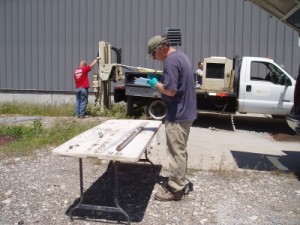 cases over the years, RMEA has efficiently and successfully, as well as cost-effectively, taken properties from an initial Phase I, through a Phase II site investigation, and finally through the cleanup phase to obtain regulatory closure. Only an experienced, full-service environmental firm has the breadth of experience to complete such projects efficiently and in a timely manner.
cases over the years, RMEA has efficiently and successfully, as well as cost-effectively, taken properties from an initial Phase I, through a Phase II site investigation, and finally through the cleanup phase to obtain regulatory closure. Only an experienced, full-service environmental firm has the breadth of experience to complete such projects efficiently and in a timely manner.
A Phase III ESA is an additional phase of site investigation focused on identifying remedial measures, and/or the implementation of actual site remediation. Visit our Site Investigations and Remediation page to learn more.
A common misconception regarding Phase II and III Environmental Site Assessments (ESAs):
Clients hear the terms “Phase I and Phase III ESAs” and are often confused by these terms, and guess that a Phase I will necessarily be followed by the need for additional, costly work. This is not true. A Phase II ESA is only needed when a recognized environmental condition is identified by the Phase 1 study. Many sites, most actually, are free of significant environmental concerns and no additional work is required. When additional work is needed, that work is focused solely on the specific condition/s identified in the Phase I. The scope of a Phase II study is therefore site specific and varies widely. Phase III studies are remediation-focused investigations that follow a Phase II. RMEA has extensive experience conducting these studies.
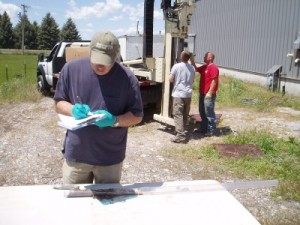 * Purchase of real property by a person or entity not previously on title. * Contemplation by a new lender to provide a loan on the subject real estate. * Partnership buyout or principal redistribution of ownership. * Application to a public agency for change of use or other discretionary land use permit. * Existing property owner’s desire to understand toxic history of the property. * Compulsion by a regulatory agency who suspects toxic conditions on the site. * Divestiture of properties. Rocky Mountain Environmental has performed hundreds of ESAs, including Phase I, Phase II, and Phase III Environmental Site Assessments. The types of properties for which environmental compliance inspections have been completed include:
* Purchase of real property by a person or entity not previously on title. * Contemplation by a new lender to provide a loan on the subject real estate. * Partnership buyout or principal redistribution of ownership. * Application to a public agency for change of use or other discretionary land use permit. * Existing property owner’s desire to understand toxic history of the property. * Compulsion by a regulatory agency who suspects toxic conditions on the site. * Divestiture of properties. Rocky Mountain Environmental has performed hundreds of ESAs, including Phase I, Phase II, and Phase III Environmental Site Assessments. The types of properties for which environmental compliance inspections have been completed include:
- agricultural lands
- apartment houses
- office buildings
- petroleum retailers
- automobile repair and service stations
- industrial properties
- farms
- grocery stores
- motels
- restaurants
- dry cleaners
- commercial properties
- vacant lands
- day care centers
- automobile dealerships
- residential properties and subdivisions
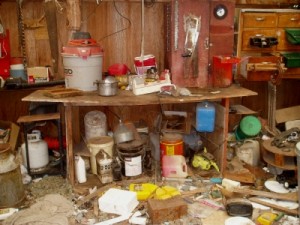 If you are in need of an ESA and are considering various consultants, ask them three questions:
If you are in need of an ESA and are considering various consultants, ask them three questions:
1. Are ESAs a core business of your company, or are you primarily in another line of work, such as engineering?
At RMEA, ESAs are and always have been a core part of our business since our inception in 1991.
2. How much experience with Phase I ESAs and environmental consulting does the consultant assigned to my project have?
It is common in the industry, particularly with firms who perform ESAs as a side-niche, to assign these projects to junior staff. Often a more senior person may technically manage the project, but the junior person conducts the site inspection and background research. The use of inexperienced staff can result in accidental errors, omissions, oversights or other problems which can increase your timeline and overall cost. When you select RMEA, you will be working with professional staff, and they will conduct all the work on your site.
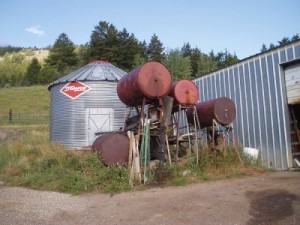 3. Does your staff have the knowledge to efficiently and effectively deal with potential or real environmental concerns identified by the Phase I?
3. Does your staff have the knowledge to efficiently and effectively deal with potential or real environmental concerns identified by the Phase I?
This is a common problem with firms which dabble in ESAs. RMEA has taken many sites from the initial identification of a recognized environmental condition, through Phase II Investigation, and eventual regulatory closure. RMEA staff have close working relationships with regional and state regulatory staff, and in countless cases have used our knowledge and experience to creatively and efficiently address and reach closure of sites with environmental issues.

